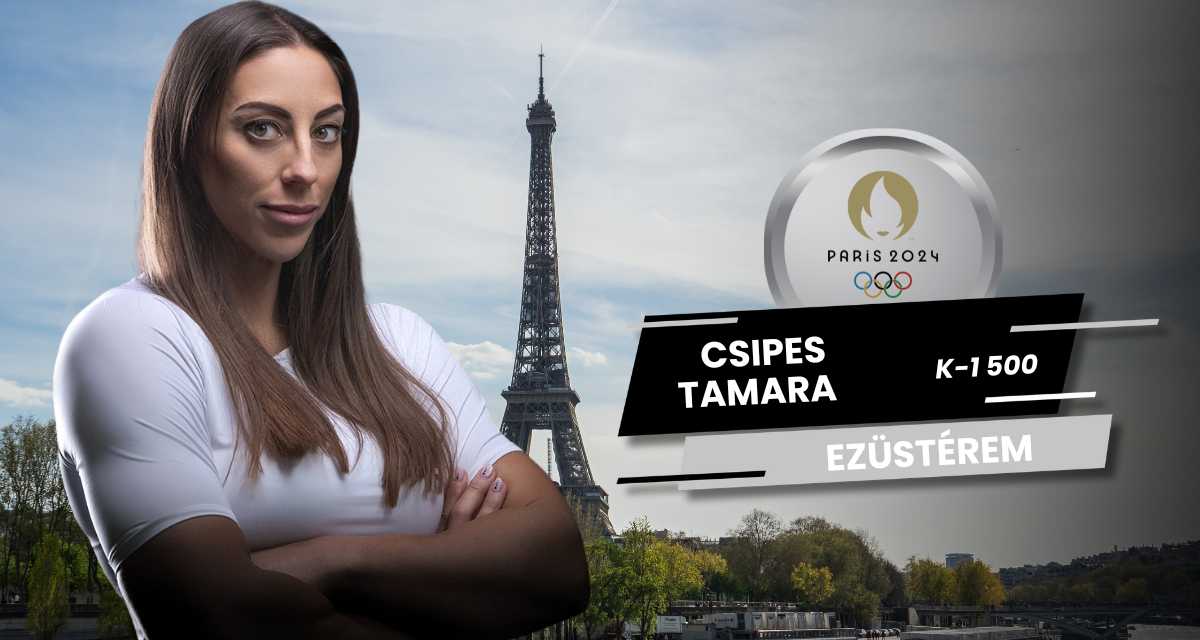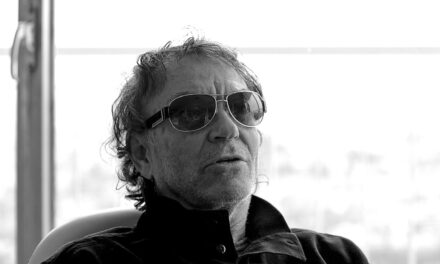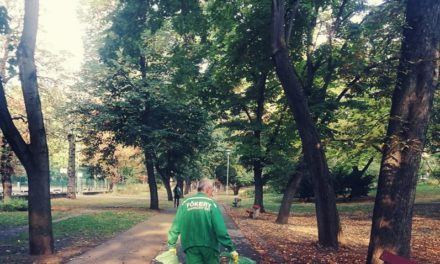The kayak-canoe program at the Paris Olympics came to its last day, and on Saturday the main role was played by the individual numbers. Tamara Csipes won a silver medal in the women's K–1 500 meters, Dóra Alida Gazsó finished sixth, Ádám Varga won the silver medal in the men's K–1 1000 meters, and Bálint Kopasz won the bronze medal.
Women's K–1,500 meters
Three.
Two.
One?
We could count backwards, but no, this is the double performance of Tamara Csipes and Dóra Alida Gazsó in Paris so far. The two kayakers won the bronze medal with the four, and the silver medal in pairs.
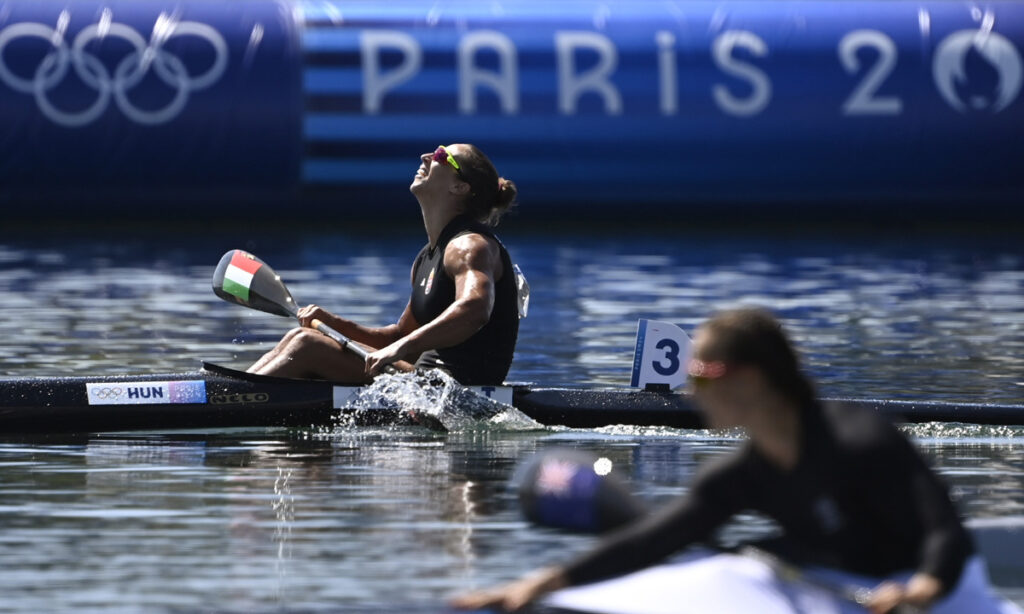
Silver medalist Tamara Csipes during the women's kayak individual 500m final at the Paris 2024 Summer Olympics at the rowing and kayaking course in Vaires-sur-Marne on August 10, 2024. MTI/Tamás Kovács
On Saturday - the last day of the kayak-canoe program - the individual finals were held at the water center in Vaires-sur-Marne, where this time neither wind nor cloud interfered with the overall picture. Tamara Csipes was preparing for the last Olympic competition day of her life, and the other day she also revealed that, no matter how much she is a professional competitor and focuses on the races, it was still in her head that this was the last dance.
In short, we started the afternoon with good omens, as both Csipes and Gazsó won their races in the morning semi-final, and in fact, only Lisa Carrington had a better time than Csipes in the semi-final.
In the finals, Csipes rowed on the three course, Gazsó on the four course. Both Hungarians got off to a good start, Csipes took the lead after a hundred meters, and at the half distance she was a quarter of a boat length ahead of Lisa Carrington. The New Zealander started on a big run, there was no stopping her, Tamara Csipes finished second and won the silver medal!
Dóra Alida Gazsó came in sixth place.
It is interesting that three years ago, in Tokyo, the order was the same: Lisa Carrington (New Zealand), Tamara Csipes (Hungary), Emma Jörgensen (Denmark). Yesterday, Lisa Carrington overtook Danuta Kozák in terms of Olympic gold medals. With today's success, the New Zealand legend was able to enjoy his eighth Olympic first place.
Men's K–1 1000 meters
Bálint Kopasz arrived in Paris as the defending champion, and his undisclosed goal was to collect another gold medal after Tokyo. Three years ago, Ádám Varga was able to stand on the second step of the podium in the king's race, and considering the form of both our kayakers, we could be confident that we would once again take two places on the podium.
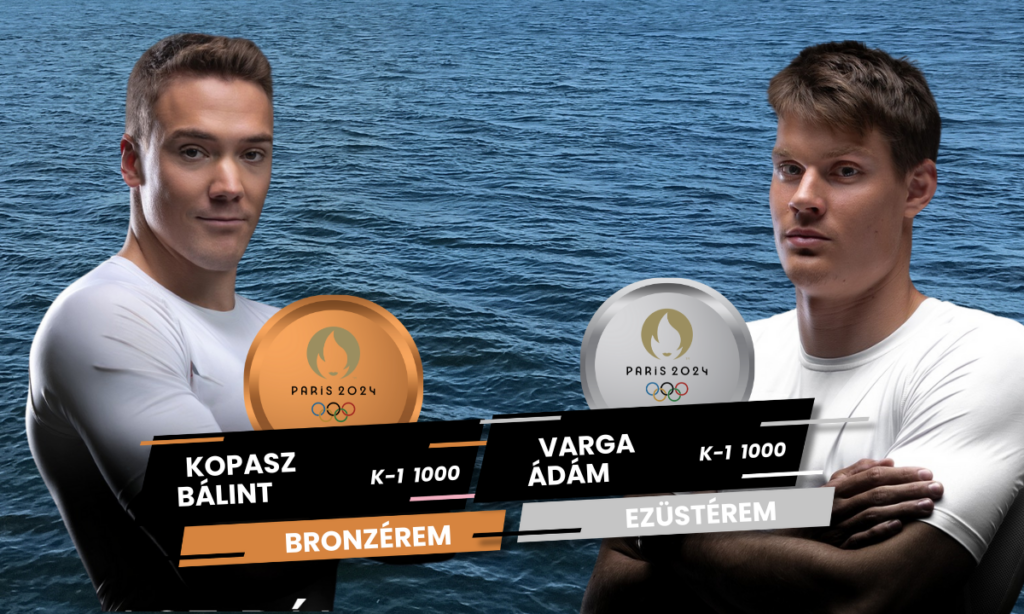
Throughout the week, Kopasz seemed focused, paying close attention to his tight schedule, his workouts, fitness, nutrition, and so on. Varga said a few days ago that he expects Fernando Pimenta and Jakob Thordsen to be his biggest opponents in the finals, along with Kopasz.
In the morning semi-final, both Hungarian competitors won their races, Varga was almost one second better than Kopasz. It is true that the semifinals in Kopazzék were smoother from the point of view that in the second 500 meters it was almost clear which of the four boats would advance.
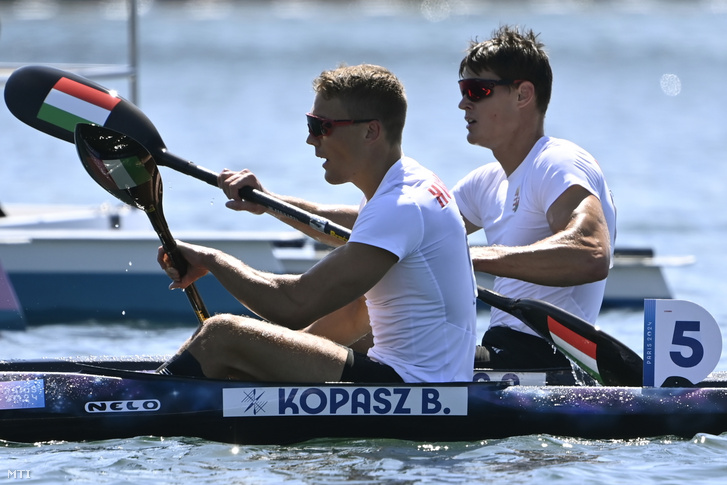
Bálint Kopasz and Ádám Varga. Photo: Tamás Kovács / MTI
In the final, Varga was interested in field four, Kopasz in field five. Both Hungarian boats pulled well from the start, after a few meters Kopasz was in third place and Varga was in fourth place.
Pimenta got off to a good start, he had a lead of seven tenths after 250 meters. The Czech Josef Dostal came in second place, Kopasz shoveled in third place when we reached the half distance.
Kopasz, who started in the second 500 meters, Pimenta began to tire, the Czech also passed him, and with 250 meters to go, Kopasz was already in second place.
However, Varga made an incredible push to the end, overtook Kopasz, but he could no longer catch up with the Czech boat. Dostal is the gold medalist, Vargá is the silver, Kopaszé is the bronze.
Featured image: civilek.info

